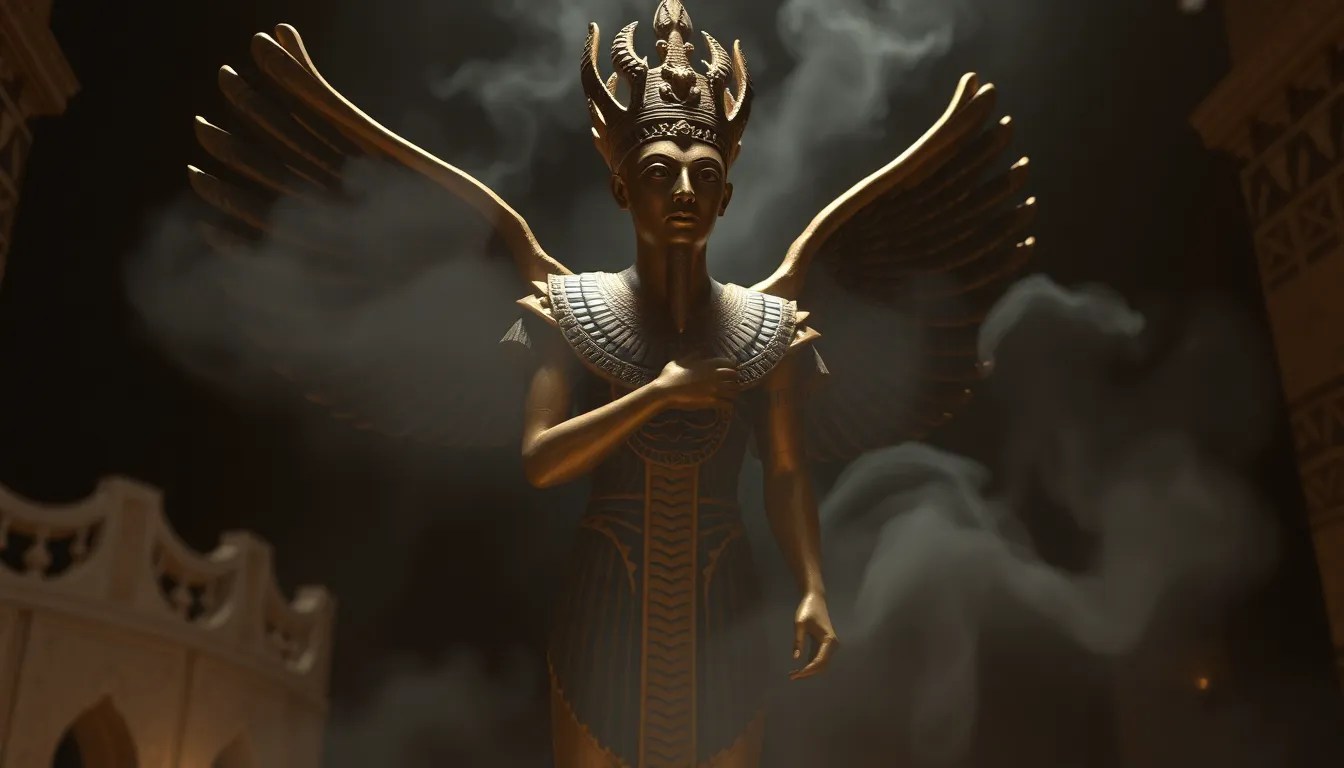The Power of Protection: How Ancient Egyptians Invoked Their Deities
Introduction to Ancient Egyptian Beliefs
Ancient Egyptian culture was deeply intertwined with a rich tapestry of beliefs and practices centered around their deities. The Egyptians viewed the divine as omnipresent and influential in every aspect of life, from the mundane to the extraordinary. Deities were not merely figures of worship but were seen as essential protectors who guided and safeguarded individuals in both their earthly existence and the afterlife.
The notion of protection permeated daily life, influencing everything from personal safety to the security of the state. The belief in an afterlife further reinforced this need for protection, as individuals sought to ensure their safe passage and secure existence beyond death.
The Pantheon of Protective Deities
In the vast pantheon of Ancient Egyptian gods, several deities were particularly associated with protection. Below are some of the key figures:
- Isis: Often regarded as the mother goddess, Isis was known for her powerful magic and her role as a protector of the vulnerable, including children and the deceased.
- Horus: Symbolized by the falcon, Horus was the god of the sky and kingship. He was seen as a protector of pharaohs and the embodiment of divine kingship.
- Anubis: The jackal-headed god, Anubis was associated with mummification and the protection of the dead. He guided souls through the afterlife and ensured their safety.
These deities, among others, were invoked for their protective qualities, each possessing unique attributes that reflected their powers and responsibilities.
Amulets and Talismans: Material Symbols of Protection
Amulets and talismans played a significant role in Ancient Egyptian society, serving as material symbols of protection. These objects were often inscribed with spells or images of deities and were worn or placed in tombs to ward off evil and misfortune.
Some popular amulets included:
- Eye of Horus: Symbolizing protection, health, and restoration, this amulet was believed to offer the wearer safety from harm.
- Scarabs: Representing rebirth and transformation, scarab amulets were thought to protect the wearer during their journey through the afterlife.
- Ankh: The symbol of life, the ankh was believed to provide protection against death and was often included in burial items.
These amulets were more than decorative items; they embodied the hopes and prayers of the wearer, providing a tangible connection to the divine.
Rituals and Offerings to Invoke Divine Protection
To invoke divine protection, Ancient Egyptians engaged in various rituals and offerings. These ceremonies were essential in establishing a connection with the deities and seeking their favor.
Common rituals included:
- Purification rites: Rituals aimed at cleansing individuals or spaces to invite divine presence.
- Offerings of food and drink: To please the gods, offerings were made at shrines and temples, often accompanied by prayers seeking protection.
- Invocation of names: Speaking the names of deities during rituals was believed to summon their protective powers.
The importance of these offerings and prayers cannot be overstated; they were acts of devotion that reinforced the bond between the mortal realm and the divine.
The Role of Magic and Spells in Seeking Protection
Magic and spells were integral facets of Ancient Egyptian religion. Spells were meticulously crafted incantations that invoked divine powers to ensure protection in various contexts.
Examples of protective spells include:
- Spells for safe travel: These were recited to protect individuals during journeys, ensuring safe passage through dangerous territories.
- Spells for health and wellbeing: Such spells aimed to ward off illness and misfortune, often invoking deities associated with healing.
- Funerary spells: Used during burial practices, these spells were designed to safeguard the deceased in their journey to the afterlife.
Through these spells, Ancient Egyptians believed they could harness the power of their gods to provide safety and security in their lives.
Burial Practices and the Afterlife: Protection Beyond Death
The concept of protection extended profoundly into burial practices and beliefs about the afterlife. The Ancient Egyptians viewed death not as an end, but as a transition to another realm where protection was equally vital.
Key aspects of these practices included:
- Tomb inscriptions: Hieroglyphs inscribed on tomb walls often contained spells and prayers for protection and guidance in the afterlife.
- Funerary rituals: Elaborate ceremonies were conducted to ensure the safe passage of the deceased, often involving the invocation of protective deities.
- Burial goods: Items placed in tombs, including amulets and food, were intended to safeguard the deceased and provide for their needs in the afterlife.
These practices reflected the belief that protection did not cease with death but continued into the next life.
Cultural Legacy: The Influence of Ancient Egyptian Protection Practices
The protective practices of Ancient Egypt have left a lasting legacy that continues to influence modern spirituality and cultural practices. The fascination with Egyptian deities and their protective roles has permeated various aspects of contemporary life, including:
- Modern spirituality: Many people today incorporate Egyptian symbols and deities into their spiritual practices, seeking protection and guidance.
- Art and literature: The imagery of protective deities and amulets often appears in modern art and storytelling, reflecting the enduring appeal of these ancient beliefs.
- Psychology and symbolism: The concepts of protection and safety derived from these ancient beliefs continue to resonate in discussions around mental health and well-being.
This cultural legacy showcases how the quest for protection transcends time and continues to inspire and inform contemporary beliefs.
Conclusion: The Lasting Power of Divine Protection
In conclusion, the importance of protection in Ancient Egyptian life cannot be overstated. From invoking deities for safety to elaborate burial practices designed to safeguard souls beyond death, the quest for protection was a paramount concern that shaped their worldview.
Today, the legacy of these beliefs continues to resonate across cultures, reflecting a universal human desire for safety and security. The enduring fascination with the protective powers of Egyptian deities underscores the timeless relevance of these ancient practices in our ongoing search for protection and peace.




